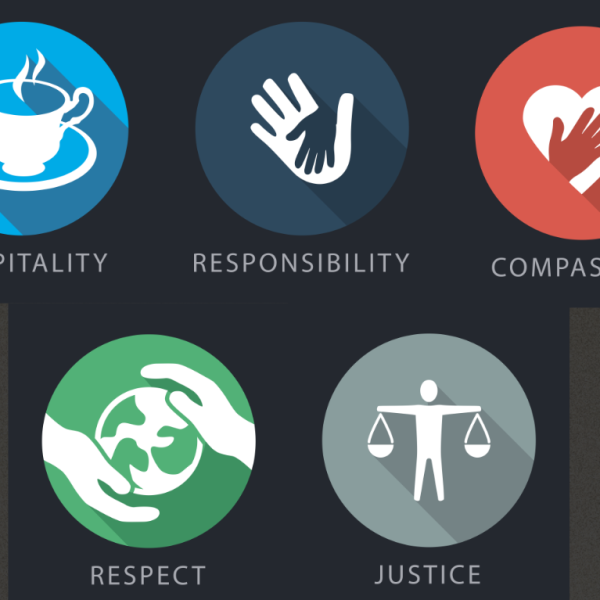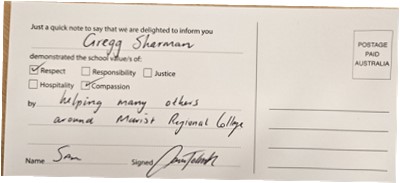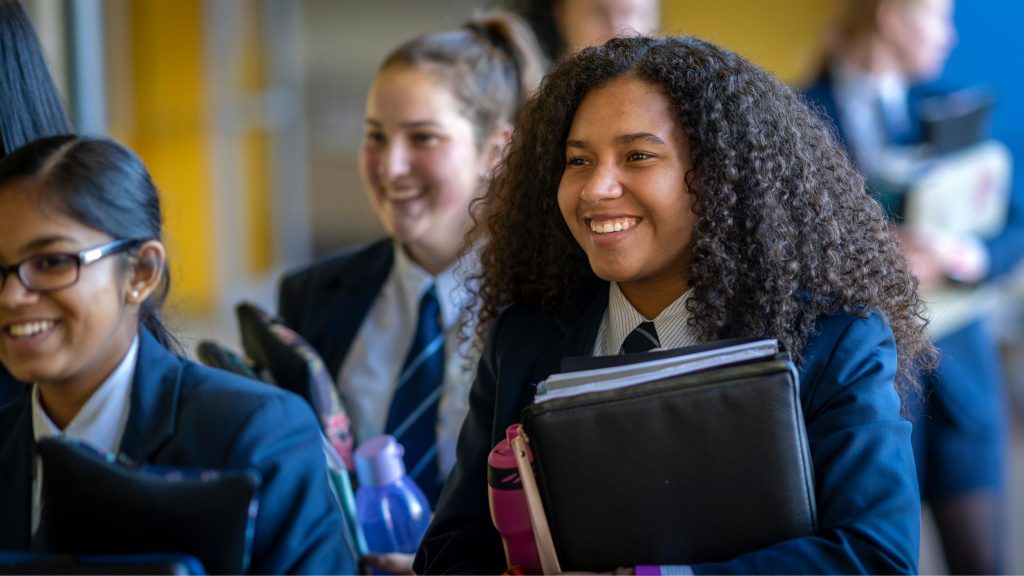

School Values Awards and recognition
Over the course of the coming weeks, we will be collating the names of all of the students who are recognised for displaying our school Values of Respect, Responsibility, Justice, Hospitality and Compassion. Currently, we have postcards that are sent home when a student is shown to demonstrate our school values. The next phase of this system will be to collate the names and put them in to a draw which will be drawn in assembly. A student from each Year level and a staff member will receive a canteen voucher if their names are drawn in assembly. All names will be collected and added to a Star article. I look forward to celebrating the wonderful work our students and staff do around this amazing College.

The Resilience Project – Strategies for your own mental health
Mindfulness Meditation: Improve Your Health in Nature – Untamed Space
4 Social Media Safety Tips for Parents
Above all else, it’s absolutely necessary to simply talk to your child about the internet. Communicate with them openly and make it clear you’ll be there for them no matter what happens. They should know they can come to you instead of having to suffer in silence whenever something hurts them on the internet.
Be observant, pay attention to their online habits and try to gently open conversations if you notice a change in your child’s behavioural patterns. Be their foundation of support and not a source of punishment.
Remember that even unconsciously, their behaviour is modelled upon yours.
Here are four additional tips that, together with effective communication, can help you keep your children safe online:
- Turn On Privacy Settings
Most platforms have parental controls and privacy settings that you can enable for your children at all times.
Also, teach them to use strong passwords and avoid friend requests from people they don’t know. This will help keep hackers from breaking into their social media accounts and hijacking them for illegal content or activities.
- Know the Platform’s Age Requirements
Encourage your child to follow the minimum age requirements of the social media platforms they create their accounts on. If they are too young and want a safe space to explore what social media is, sit down with them while logged in to your own account and show them around. Assuage their curiosity instead of pushing them to make secret accounts of their own.
For instance, on Facebook and Instagram, the minimum requirement to use the platforms is 13 years of age due to the Children’s Online Privacy Protection Act (COPPA) which sets out regulations for online platforms to safeguard kids browsing online.
- Get an Account for Yourself
Create a social media account for yourself, so you can stay connected with the beautiful world your child is building for themselves online. You can follow their progress while ensuring they are doing well and staying safe.
- Verify Your Child’s Friends and Connections
While the world of social media can be exciting and fun, it can turn into a disaster if one engages with malicious sites or commits online fraud. Take a closer look at your kids’ connections on the social media platforms they use, and ask them to get rid of the fake ones.
Parents can then help their children identify fake social media friends by educating them about the kinds of behaviours that are appropriate for real friendships. Teach them to remain cautious when talking with people they meet online, even if those people seem friendly. Remind them that real friends should not ask them to do anything that makes them uncomfortable.
Mr Sam Johnstone
Deputy Principal: Pastoral Care and Well-being


